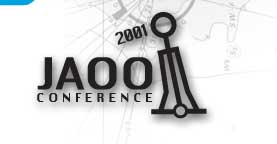|
|
 |
Both technical presentations as well as tutorials are categorized
in a number of themes. For each theme, we'll organize an introduction and a
panel. This helps get some dialogue on some interesting issues, and in general
puts things into perspective.
The themes that we have come up this year, are as follows:
- Software Design
- Extreme Programming in Practice
- Architecture and Methods
- Managing Software Projects
- Scripting - the glue
- Middleware
- Pervasive Computing
In addition to these, there might be a few off-beat technical Java talks,
or a keynote speaker who doesn't fit, but in general these will be the
themes. The following few sections outline our ideas for these themes.
SOFTWARE DESIGN
In this theme, we'd like the presentations to highlight the various (opposing)
approaches to design ranging from strictly mechanical software design (focused
on classes, methods, cohesion, reuse, etc.) to domain-oriented software design
(with focus on user involement, domain modeling, etc.) This distinction is
sometimes referred to as "The American Tradition" versus "The Scandinavian
Tradition".
EXTREME PROGRAMMING IN PRACTICE
The XP methodology is gaining more and more interest. Now we're at a point
where lots of people are interested, and quite a few have tried it.
We'll try to focus this theme on how to make XP real, how to do XP in large
projects, distributed projects, etc.
ARCHITECTURE AND METHODS
Software architecture and methods are considered as two key success factors for
every serious software development project. A high-quality software architecture
is a prerequisite for applications that want to meet both their functional and
non-functional requirements. Software development methods aim at creating such
software architectures in a precise and constructive manner. Yet it still is
surprisingly hard to build high-quality software architectures, even with modern
software development methods, so we'd like to explore the secrets of such
architectures as well what modern software development methods contribute to
building them.
MANAGING SOFTWARE PROJECTS
One thing that always lacks at conferences like this is presentations on project
management, by real managers who have actually managed projects. There tends to be lots of
talks by consultants, advisors and so on, who can always leave a project. Here, we'll try to
pull together a
panel (in particular) on the theme of management.
SCRIPTING - the glue
Putting together applications from parts is something that everyone does in one
way or another, but this field is not established as a research field. Scripting
languages has been used for this for many years, but script programming has
always been regarded as "hacking". Why is that?
Recent research developments such as AspectJ? put a different spin on the
integration of logically distinct software parts. We'd like to challenge
the designers of some of the major scripting languages as to why they designed
their languages the way they did.
MIDDLEWARE
In recent years technologies and platforms for distributed computing are
becoming more accessible, matured and widely applicable in a wide
range of applications. Standards work such as CORBA and J2EE is making these
technologies available in many kinds of projects.
PERVASIVE COMPUTING
Object technologies are creeping into every little
device. In recent years, there has been
a range of new developments towards putting Bluetooth and Java technology in embedded systems,
cell phones, etc. We have invited some of the people
making this happen.
|
|
| |
The conference ArcMed 2001 is this year one of the co-events of
JAOO
2001.

ArcMed is a conference with special focus on Software
Architectures in Medicine.
More information
|
|



